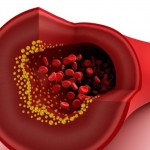 3 Warnings Regarding High Cholesterol Medications
3 Warnings Regarding High Cholesterol Medications
Many people, somewhere within their fourth or fifth decade of life, will be diagnosed for the first time as having high cholesterol–specifically a high concentration of low density lipo (fatty) proteins circulating within their blood. At this point, concerned doctors will recommend that their patients modify their diets, lose weight (if necessary) and become more physically active.
Knowing full well that most patients will not comply with the above “orders”, or if these lifestyle changes have already been implemented with less than adequate results, physicians will take treatment one step further by prescribing a medication which protects the heart and blood vessels against the onslaught of cardiovascular disease.
The medications most commonly prescribed are from a drug class called statins with brand names such as Lipitor®, Crestor® and Zocor®. These meds work by reducing the production of cholesterol by the liver and therefore preventing artery-clogging plaque formation within the walls of your blood vessels.
It is important to know that statins are not a “cure all” pill. You actually do need to exercise and eat a heart healthy diet in conjunction with your medication (your doctor’s first “orders”). In fact, once study published in The Lancet showed that regular exercise alone had a greater effect on lowering cholesterol than taking statins (without exercising) did. So imagine the “bang for your buck” you’ll get if you employ both these cholesterol fighting methods simultaneously!
Now a word of warning, well, actually three points worth noting:
- Do not eat grapefruit or drink grapefruit juice if you are taking statin medication. Grapefruit blocks the absorption of statins from your gut and significantly reduces its effectiveness.
- One rare but critical side effect to keep in mind is that statins can cause a serious type of muscle disease called rhabdomyolysis. If you experience muscle cramping after beginning this medication, contact your doctor immediately.
- Make sure your doctor is checking your liver enzymes regularly (usually every 6-12 months) as statins, like many drugs, can cause liver damage over time. That said, if you have known liver disease do not take statin medication. Also, if you are pregnant, nursing, or planning to become pregnant you should abstain from this medication as well.